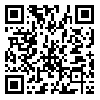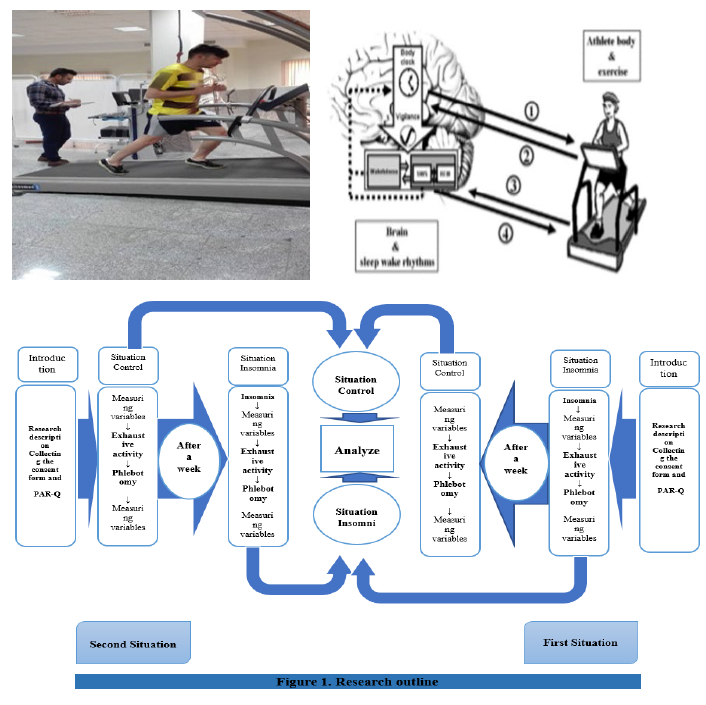Volume 12, Issue 1 (3-2022)
J Health Saf Work 2022, 12(1): 222-236 |
Back to browse issues page
Download citation:
BibTeX | RIS | EndNote | Medlars | ProCite | Reference Manager | RefWorks
Send citation to:



BibTeX | RIS | EndNote | Medlars | ProCite | Reference Manager | RefWorks
Send citation to:
Kazemizadeh V, Behpour N. The Effect of Sleep Deprivation on Objective and Subjective Physiological Responses of Student-Athletes. J Health Saf Work 2022; 12 (1) :222-236
URL: http://jhsw.tums.ac.ir/article-1-6643-en.html
URL: http://jhsw.tums.ac.ir/article-1-6643-en.html
1- Department of Sports Physiology, Faculty of Sports Sciences, Razi University, Kermanshah, Iran , Vahid13k17@gmail.com
2- Department of Sports Physiology, Faculty of Sports Sciences, Razi University, Kermanshah, Iran
2- Department of Sports Physiology, Faculty of Sports Sciences, Razi University, Kermanshah, Iran
Abstract: (2682 Views)
Introduction: Sleep deprivation is one of the factors affecting the physiological performance of athletes and laboratory evidence has suggested a link between sleep deprivation and decreased physical performance of athletes. The aim of this study was to determine the effect of sleep deprivation on objective and subjective physiological responses of student-athletes.
Material and Methods: The research is experimental. Twenty male volunteer sports science students selected and examined in two conditions with simple random selection in counter balanced intra-group pattern. Participants examined at two controlled situation; 1) after twelve hours fasting and eight hours enough sleep, and 2) after twelve hours fasting and thirty hours quiet sleeplessness. Measurements of physiological variables including: blood pressure, heart rate, blood lactate, mental scale of pressure perception, VO2max and body temperature were examined with specialized tools. Variations in independent variable related to intervention were analyzed using t test in the significance level of P<0/05 and SPSS software.
Results: Physiological responses of blood lactate (p = 0.002), heart rate (p = 0.01), ratings of perceived exertion (p = 0.002), time to exhaustion (p = 0.001), blood pressure (p = 0.01) =) and body temperature (p = 0.002), after deprivation of sleep to a debilitating activity in the post-test compared to the pre-test increased and the maximum oxygen consumption (p = 0.001) decreased significantly, which was also statistically significant. The findings of the present study showed that sleep deprivation can cause a significant change in the objective and subjective physiological responses of sports students.
Conclusion: According to the results of the present study, it was found that 30 hours of sleep deprivation caused significant changes in the objective and subjective physiological responses of athlete students. In a general conclusion, the findings of the present study showed that sleep deprivation should be mentioned as one of the potential limiting factors of physiological function.
Material and Methods: The research is experimental. Twenty male volunteer sports science students selected and examined in two conditions with simple random selection in counter balanced intra-group pattern. Participants examined at two controlled situation; 1) after twelve hours fasting and eight hours enough sleep, and 2) after twelve hours fasting and thirty hours quiet sleeplessness. Measurements of physiological variables including: blood pressure, heart rate, blood lactate, mental scale of pressure perception, VO2max and body temperature were examined with specialized tools. Variations in independent variable related to intervention were analyzed using t test in the significance level of P<0/05 and SPSS software.
Results: Physiological responses of blood lactate (p = 0.002), heart rate (p = 0.01), ratings of perceived exertion (p = 0.002), time to exhaustion (p = 0.001), blood pressure (p = 0.01) =) and body temperature (p = 0.002), after deprivation of sleep to a debilitating activity in the post-test compared to the pre-test increased and the maximum oxygen consumption (p = 0.001) decreased significantly, which was also statistically significant. The findings of the present study showed that sleep deprivation can cause a significant change in the objective and subjective physiological responses of sports students.
Conclusion: According to the results of the present study, it was found that 30 hours of sleep deprivation caused significant changes in the objective and subjective physiological responses of athlete students. In a general conclusion, the findings of the present study showed that sleep deprivation should be mentioned as one of the potential limiting factors of physiological function.
Type of Study: Research |
Received: 2022/03/6 | Accepted: 2022/03/30 | Published: 2022/03/30
Received: 2022/03/6 | Accepted: 2022/03/30 | Published: 2022/03/30
Send email to the article author
| Rights and permissions | |
 |
This work is licensed under a Creative Commons Attribution-NonCommercial 4.0 International License. |







